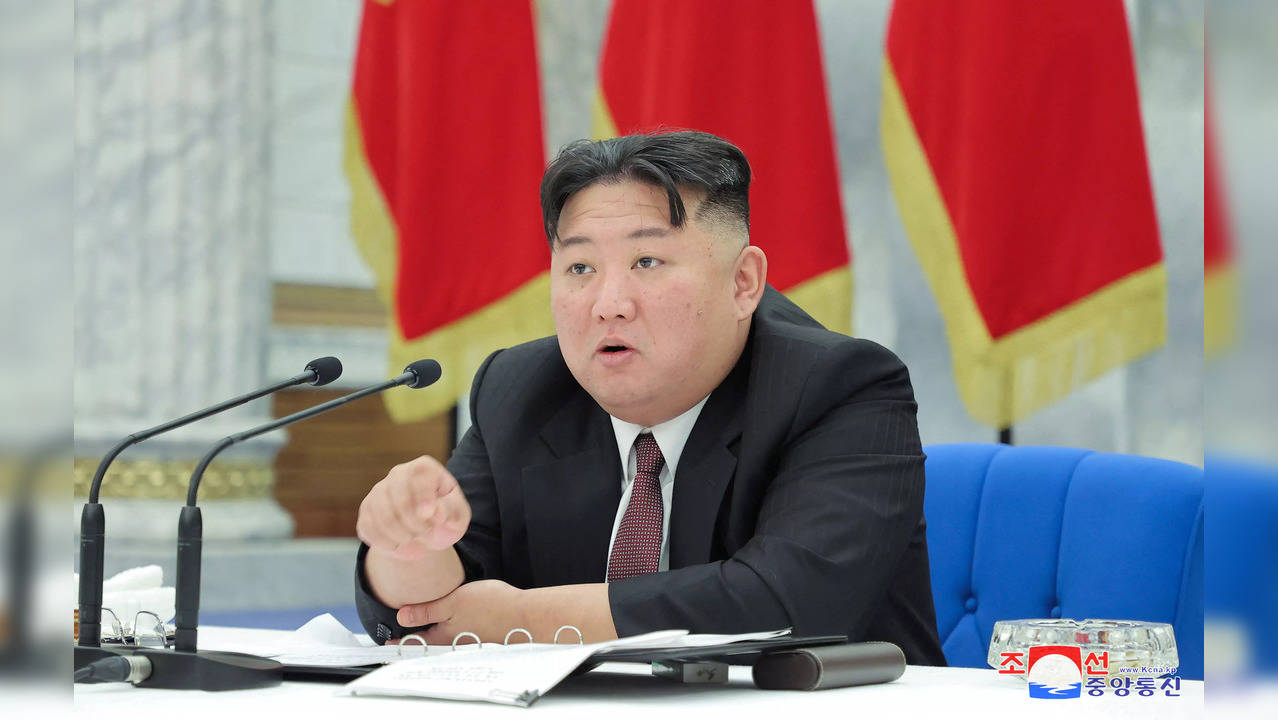North Korean leader Kim Jong-un has reportedly issued directives to expedite military preparations in response to perceived threats from the United States. Tensions between North Korea and the U.S. have been longstanding, primarily revolving around North Korea’s nuclear weapons program.
Kim’s order suggests a heightened state of alert and readiness within the North Korean military apparatus. The country’s military, known for its large standing army and missile capabilities, has been a focal point of international concern for years.
The move comes amid a backdrop of stalled diplomatic efforts and strained relations between Pyongyang and Washington. The denuclearization talks, which gained momentum in the early 2010s, have seen setbacks, leading to a stalemate. North Korea’s pursuit of nuclear weapons and the development of intercontinental ballistic missiles have been major sources of contention, triggering sanctions and international condemnation.

Source:- ndtv
Kim’s decision to accelerate war preparations may be interpreted as a response to perceived provocations or as a strategic move to bolster internal support. The regime often employs military posturing to project strength domestically and internationally. However, such escalations also raise the risk of miscalculation and regional instability.
https://youtu.be/8_JxewvvtQU?si=KG1o5iBUAb6xxqJo
Source:-BBC news
The role of North Korea’s military in the country’s political landscape cannot be overstated. Kim’s regime has maintained tight control over the armed forces, utilizing them as a crucial tool for regime stability. The military-first policy, known as “Songun,” underscores the prioritization of the armed forces in national governance.
The international community, particularly the United States and its allies, closely monitors North Korea’s military activities. Kim’s latest directive is likely to exacerbate concerns and prompt responses from neighboring countries. The delicate balance in the region, which includes South Korea and Japan, heightens the potential repercussions of any military escalation.
Efforts to address the North Korean issue through diplomatic means remain essential. The international community has sought to engage Pyongyang in talks, emphasizing the importance of denuclearization for regional peace and security. De-escalation and dialogue offer the most viable paths to resolving the longstanding tensions.
In conclusion, Kim Jong-un’s order to accelerate military preparations underscores the complex and precarious geopolitical situation on the Korean Peninsula. The international community faces the ongoing challenge of managing and mitigating tensions while pursuing diplomatic avenues to address the core issues, including North Korea’s nuclear program and regional stability.
Share your views in the comments

